What is the Effect of GST on Stock Market?
- 30 Jun 25
- 10 mins
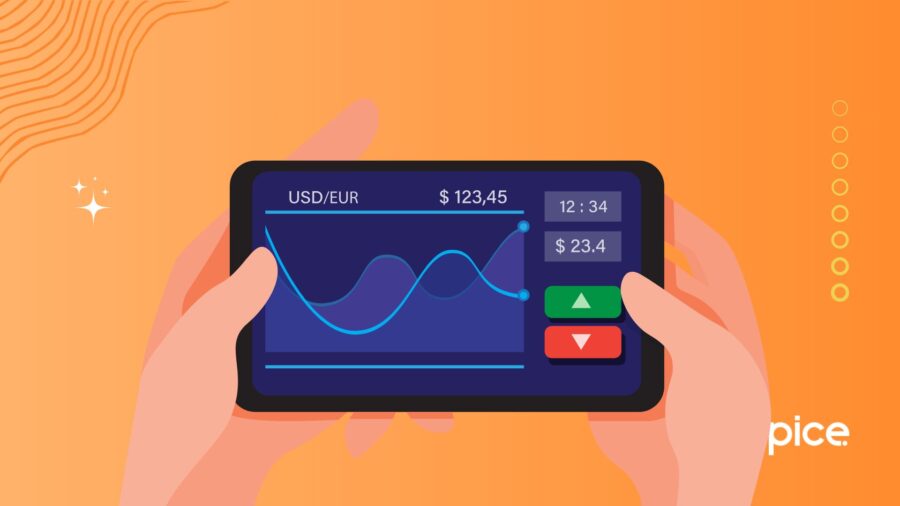
What is the Effect of GST on Stock Market?
Key Takeaways
- GST unified India's tax structure, affecting all financial services including brokerage, transaction charges, and DP fees with an 18% tax burden.
- Stock market costs like SEBI fees, exchange charges, and Demat services have become GST-inclusive, influencing investor profitability.
- GST’s implementation has shifted investor strategies, promoting long-term holdings and impacting short-term trading behaviour.
- While sectors like public banking gained momentum, others like FMCG and pharma face mixed effects due to input credit limitations.
- Despite sector-specific challenges, GST has largely driven transparency, efficiency, and formalization in the capital markets.
Aimed at creating a unified tax structure, GST replaced a complex web of indirect taxes such as VAT, service tax, and central excise, streamlining the taxation process for both goods and services. This sweeping change not only aimed to foster economic growth but also brought a notable shift in the financial ecosystem, especially within the Indian stock market.
As GST is levied on nearly all financial services, its impact has been particularly evident in areas like brokerage fees, transaction costs, and other trading-related services. While the stock exchanges determine specific transaction charges, an 18% GST, comprising 9% CGST and 9% SGST, is uniformly applied.
In this quick guide, we will explore how GST has influenced stock market operations and what it means for investors and traders alike.
Definition of Stock Exchange
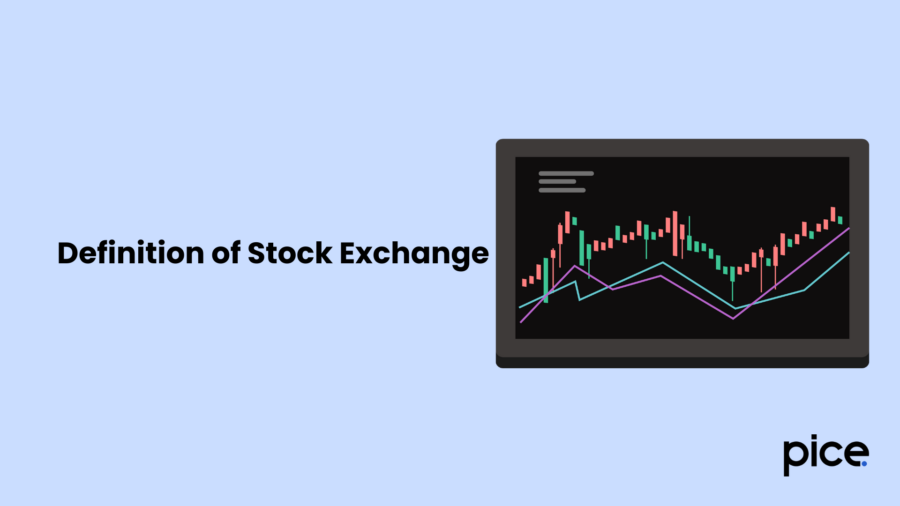
The Indian Stock Exchange is a centralised location where different company shares are publicly traded, bought, and sold. Buyers and sellers come together to trade financial products like bonds, stocks, and commodities.
Being a vital component of the stock market, it assists companies in raising money by generating equity shares for investors, leading to investors selling this capital money.
It facilitates money transactions among targeted buyers and traders. Companies enlisted in the SEBI (Securities and Exchange Board of India) can participate in the stock exchange in India.
Although most often mentioned alternatively, the stock exchange and stock market are different. While the stock market refers to the overall system where different stocks are bought and sold, the stock exchange is a particular organised marketplace where this type of trading occurs.
Cost Involvement in Stock Market Investment
Investing in the Indian stock market involves several costs beyond just the purchase price of shares. Understanding these is essential for managing your investment returns effectively.
- Brokerage Fees: Stockbrokers charge a fee for executing your buy and sell orders. This can be a percentage of the transaction value (familiar with full-service brokers) or a flat fee per executed order (common with discount brokers, often around ₹10 - ₹20). Some brokers offer zero brokerage for equity delivery trades.
- Statutory Levies:
- Securities Transaction Tax (STT): A direct tax collected by the broker on behalf of the government on exchange transactions. Rates vary depending on the segment (delivery, intraday, futures, options) and whether you buy or sell.
- Stamp Duty: Charged by the government on buy transactions across various segments like equity delivery (0.015%), intraday (0.003%), futures (0.002%), and options (0.003%).
- Goods and Services Tax (GST): Currently 18%, levied on brokerage fees and transaction charges.
- Other Charges:
- Exchange Transaction Charges: Fees charged by the stock exchanges (NSE, BSE) based on transaction turnover.
- SEBI Turnover Fees: A small fee charged by the market regulator, SEBI, on your turnover (around 0.0001%).
- Depository Participant (DP) Charges: Levied when shares are debited from your Demat account upon selling. This is usually a flat fee per transaction/ISIN (e.g., ₹15-₹25 + GST).
- Demat Account Maintenance Charges (AMC): An annual fee (typically ₹300-₹800) charged by the Depository Participant for maintaining your Demat account, though some brokers offer zero AMC accounts.
These costs vary between brokers and transaction types, impacting overall investment profitability.
Classification of Stock Exchange
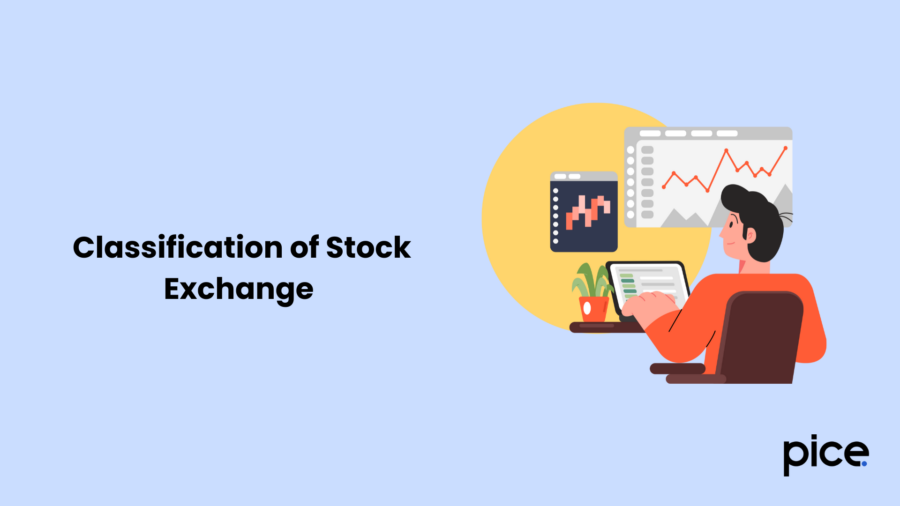
The Indian Stock Exchanges play a significant role in influencing the country's financial situation. Based on the collective performance of stock exchanges, the growth in Indian economy gets measured. The classification of the stock exchange depends on various parameters like the trading methodology, ownership structure, and the location of the trade. These are as follows:
Bombay Stock Exchange
Popularly known as BSE Limited, it is the oldest stock exchange in Asia and the 10th oldest stock exchange globally. Established in 1875, it currently has a market capitalisation of approximately 763 billion.
It facilitates primary market activities like IPO (Initial Public Offering) to raise capital and trade various securities for secondary market trading. Over 4,500 companies are listed under BSE trading derivatives instruments, equities, options, and futures. In 1995, it shifted to an electronic trading system from an open outcry system.
BSE Limited operates under SEBI (Securities and Exchange Board of India) and promotes listing compliance, investor protection, and fair trading. Although SEBI charges were exempted from GST earlier, they have become subject to 18% GST from 2022.
Major indices of BSE include the BSE 500 index, BSE Midcap Index, BSE Sensex and so on.
National Stock Exchange
The National Stock Exchange (NSE), India's leading stock exchange, was established in 1992 as the country's first dematerialised stock exchange. In the following year, SEBI recognised it and started operating in the wholesale debt market and cash market segments.
The NSE's market capitalisation is 43.8 million. It is one of the world's largest stock exchanges, which introduced the Nifty 50 Index and began trading and settlement in mainly dematerialised securities. Indian investors use the NSE extensively to measure the performance of the Indian stock market.
The major indices of the National Stock Exchange are the Nifty 50, Nifty Next 50, Nifty VIX, and so on. 18% GST is applicable for NSE transactions, such as SEBI transactions, brokerage, exchange transaction charges, etc.
What is the Effect of GST on the Stock Exchange?
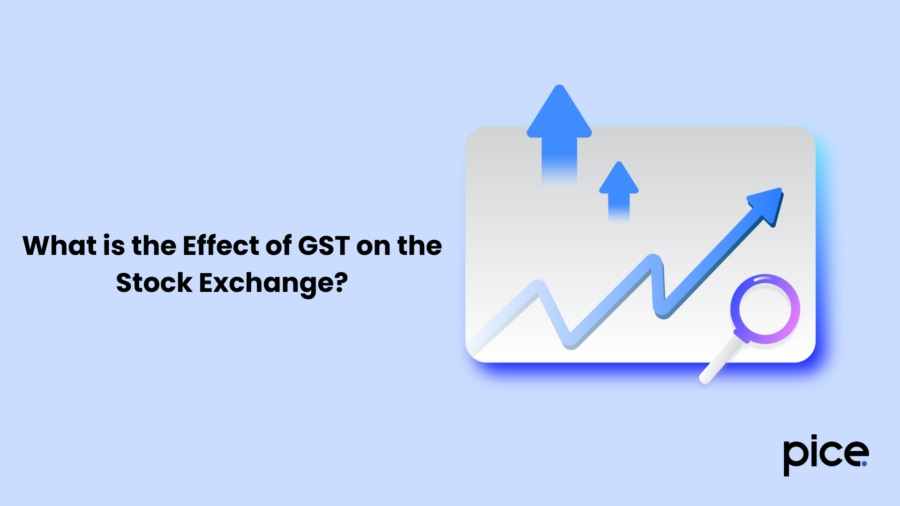
Looking at the increased government revenue and economic progression, it is possible to determine how GST implementation has impacted the stock exchange and, eventually, the stock market.
The Impact of GST on BSE
GST implementation has significantly influenced investor behaviour, capital market, sectoral performance and the profitability of the enlisted companies. Following are some of the significant effects of GST on BSE:
- Investors invest long-term to eliminate the GST burden levied on brokerage and other market transactions.
- Even though the tax amount has increased, the public bank sector has seen a positive impact from demonetisation and the emergence of the digital economy.
- The increased burden of tax rate has negatively impacted the FMCG sector. These sectors must set up units in different states to trade within.
The Impact of GST on NSE
Unexpected gains and losses, combined with a simplified taxation system, on the Nifty 50 index portray that the effect of GST on the NSE has been positive and, in some cases, negative, too.
- As market volatility increased, short-term investments led to unexpected returns. Many investors, therefore, are avoiding investing in short-term financial instruments.
- GST has led to multiple shifts in the efficient capital markets, directly influencing investor preferences.
- Simplified taxation has reduced tax evasion and penalties.
- The renewable energy and pharmaceutical sectors struggle with GST because of exemption and inverted duty structures.
It is unclear whether the SSE and NSE consistently adopt GST implementation. Consequently, it is hard to say whether GST's effect on the stock market is positive or negative.
How is the Capital Market Impacted by the Effect of GST on the Stock Market?
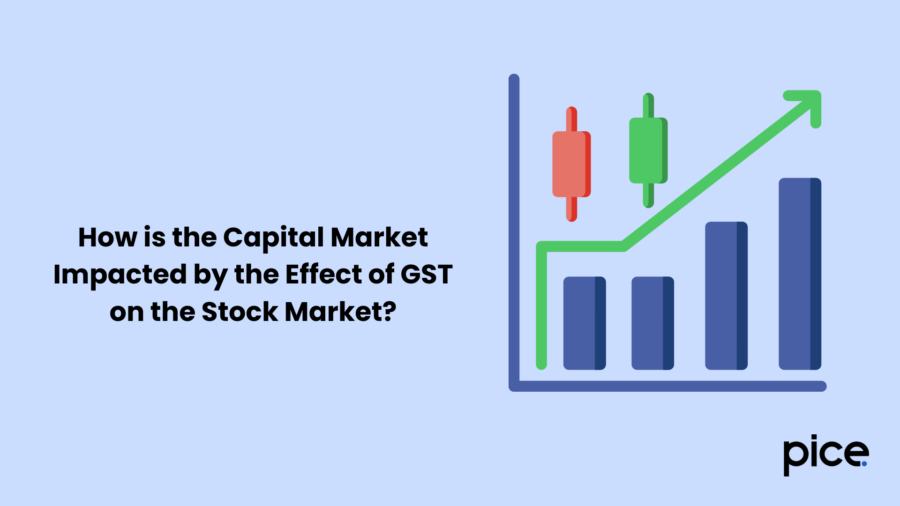
The Goods and Services Tax (GST) influences the capital market primarily through its effect on the stock market performance of listed companies.
GST's implementation impacts corporations by:
- Improving Efficiency: Simplifying the tax structure and allowing input tax credits can lower operational costs and streamline supply chains for many businesses.
- Boosting Profitability: Reduced tax cascading and logistical efficiencies can lead to better margins and profitability for compliant companies.
- Enhancing Transparency: A unified tax system can improve corporate governance perception and formalize parts of the economy.
These corporate-level effects translate to the stock market. Companies expected to benefit from GST often see increased investor interest, potentially leading to higher share prices and valuations. Improved profitability directly supports stock performance.
A healthier, more robust stock market, driven partly by the positive impacts of Goods and Services Tax on corporate earnings and sentiment, directly strengthens the capital market. It facilitates easier capital raising for companies via IPOs and FPOs, increases market liquidity, and boosts investor confidence. While specific sectors may face varied impacts, the overall move towards a more efficient and formalized economy via GST generally supports a stronger performance in the equities segment, thus bolstering the capital market.
Conclusion
Overall, in the early days, implementing GST was expected to bring a sea change to the Indian stock market, with one being the unifying instrument for merchants in various trading activities. Transaction costs affecting investor behaviour and sector performance comprise everything from brokerage fees to SEBI charges, and 18% GST affects all of them.
Some sectors may benefit from operational challenges, while others may suffer. Mixed results notwithstanding, GST has still provided the impetus for making capital markets more formal and efficient. This makes it an essential variable in India's quickly changing scenario of finance.
💡If you want to streamline your invoices and make payments via credit or debit card or UPI, consider using the PICE App. Explore the PICE App today and take your business to new heights.



















